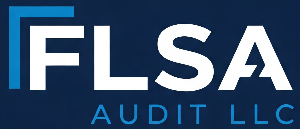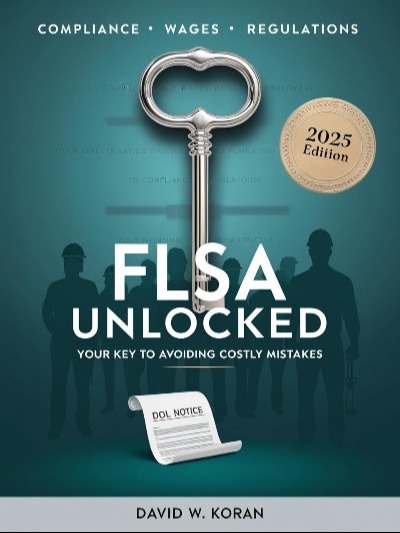The Critical Importance of Being Discovery-Ready in an FLSA Lawsuit
When an employer is served with a lawsuit under the Fair Labor Standards Act (FLSA), the stakes are high. The FLSA governs essential workplace standards—minimum wage, overtime pay, recordkeeping, and child labor protections—and violations can lead to costly penalties, back wages, and reputational damage. One of the most pivotal phases of such a lawsuit is discovery, the process where both parties exchange information to build their cases. For employers, having discovery materials prepared and organized from the moment a lawsuit lands on their desk isn’t just a legal strategy—it’s a necessity. Here’s why.
1. Time Is Not on Your Side
FLSA lawsuits often move quickly, especially when employees seek collective action to include others in similar roles. Courts impose strict deadlines for discovery responses, typically requiring employers to produce documents—payroll records, time logs, job descriptions, and more—within weeks. If an employer hasn’t maintained these records or can’t access them efficiently, scrambling to compile them under pressure risks incomplete or inaccurate submissions. This not only weakens the defense but can also signal to the court a lack of diligence, potentially leading to sanctions or unfavorable inferences.
2. Accurate Records Are Your Best Defense
The FLSA places the burden on employers to prove compliance through detailed, accurate records. For instance, if an employee claims unpaid overtime, the employer must show hours worked and wages paid to counter the allegation. Without readily available timecards, pay stubs, or policies classifying employees as exempt or non-exempt, the employer’s case rests on shaky ground. Courts often side with employees when records are missing or unclear, assuming the employer failed to meet its legal obligations. Being discovery-ready means having these documents at your fingertips, turning a potential liability into a shield.
3. Mitigating the Scope of the Lawsuit
FLSA cases frequently start with one employee but can balloon into collective actions involving dozens or hundreds of workers. During discovery, plaintiffs’ attorneys dig for evidence to expand the scope—looking for patterns of misclassification, off-the-clock work, or wage violations. Employers who enter discovery unprepared may inadvertently hand over disorganized or incomplete data that fuels the opposition’s case, making it easier to certify a larger class. Conversely, a well-prepared employer can present clear, consistent records that limit the narrative to an isolated incident, reducing exposure and costs.
4. Controlling Legal Costs
Discovery is one of the most expensive phases of litigation. Attorneys bill hours combing through records, drafting responses, and addressing disputes over missing or unclear information. If an employer’s records are chaotic—think unfiled timesheets, outdated payroll systems, or inconsistent policies—the legal team must spend extra time sorting the mess, driving up fees. Having discovery materials pre-organized streamlines the process, allowing attorneys to focus on strategy rather than cleanup. In a high-stakes FLSA case, this efficiency can save thousands of dollars.
5. Demonstrating Good Faith with an External Audit
One powerful way to bolster an employer’s position is by proactively engaging an external FLSA audit before trouble strikes. Bringing in outside experts to review wage practices, employee classifications, and recordkeeping shows a clear intent to comply with the law. This step not only identifies and corrects potential violations early but also produces a documented trail of diligence. In discovery, presenting audit findings—especially if issues were promptly addressed—can sway a court’s perception, framing the employer as responsible rather than reckless. It’s a tangible investment in compliance that pays off when credibility is on the line.
6. Reinforcing Intent in Court
Judges and juries don’t just evaluate the facts—they assess intent. An employer who can promptly produce thorough, compliant records during discovery demonstrates good faith and a commitment to following the law. This can soften the blow if minor violations are found, as courts may view the employer as proactive rather than negligent. On the flip side, delays or gaps in discovery can paint a picture of carelessness or deliberate noncompliance, inviting harsher penalties like liquidated damages or attorney’s fees for the plaintiff. A prior external audit amplifies this good-faith narrative, proving the employer took compliance seriously.
7. Preparing for the Unexpected
FLSA lawsuits often arise from unforeseen complaints—a disgruntled employee, a miscommunication about hours, or an audit that spirals into litigation. Employers rarely get a heads-up to tidy their records before the summons arrives. Maintaining discovery-ready materials year-round—updated employee classifications, detailed timekeeping systems, and documented wage policies—ensures readiness for any surprise claim. It’s not just about reacting to a lawsuit; it’s about staying ahead of one.
Practical Steps to Get Ready
So, how does an employer become discovery-ready? Start with robust recordkeeping: track hours worked, wages paid, and break times meticulously, even for exempt employees. Regularly audit payroll systems to ensure compliance with FLSA rules, like overtime calculations or tip credits. Clearly document job duties and exemption statuses to justify classifications. Store these records in an accessible, organized format—digital backups are ideal—and train HR staff to maintain them consistently. Consider scheduling that external FLSA audit to catch blind spots, and consult legal counsel preemptively to align practices with FLSA requirements.
The Bottom Line
In an FLSA lawsuit, discovery isn’t a formality—it’s a battleground. Employers who enter unprepared risk losing control of their defense, facing escalated claims, and incurring steep financial hits. But those who prioritize readiness—through meticulous records, proactive audits, and strategic planning—can turn the tide, using solid evidence to protect their business and reputation. The lesson is clear: when it comes to FLSA compliance, preparation isn’t optional—it’s everything.


